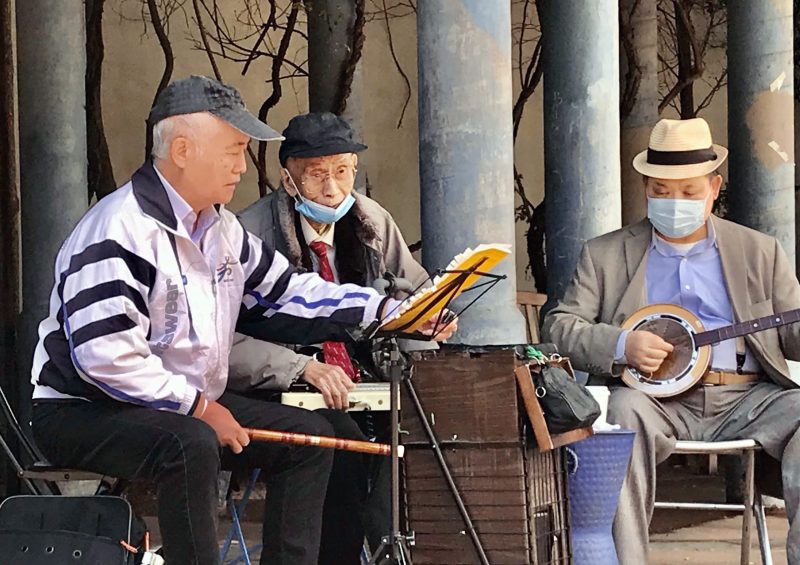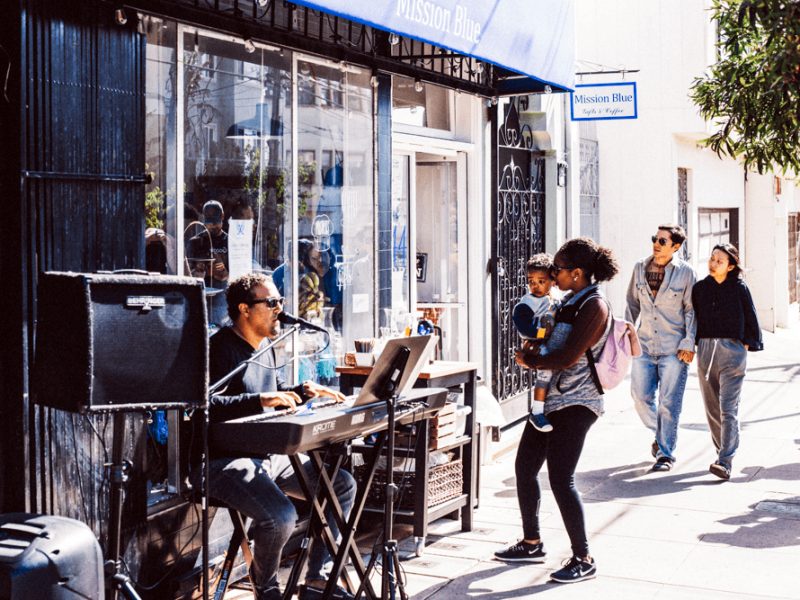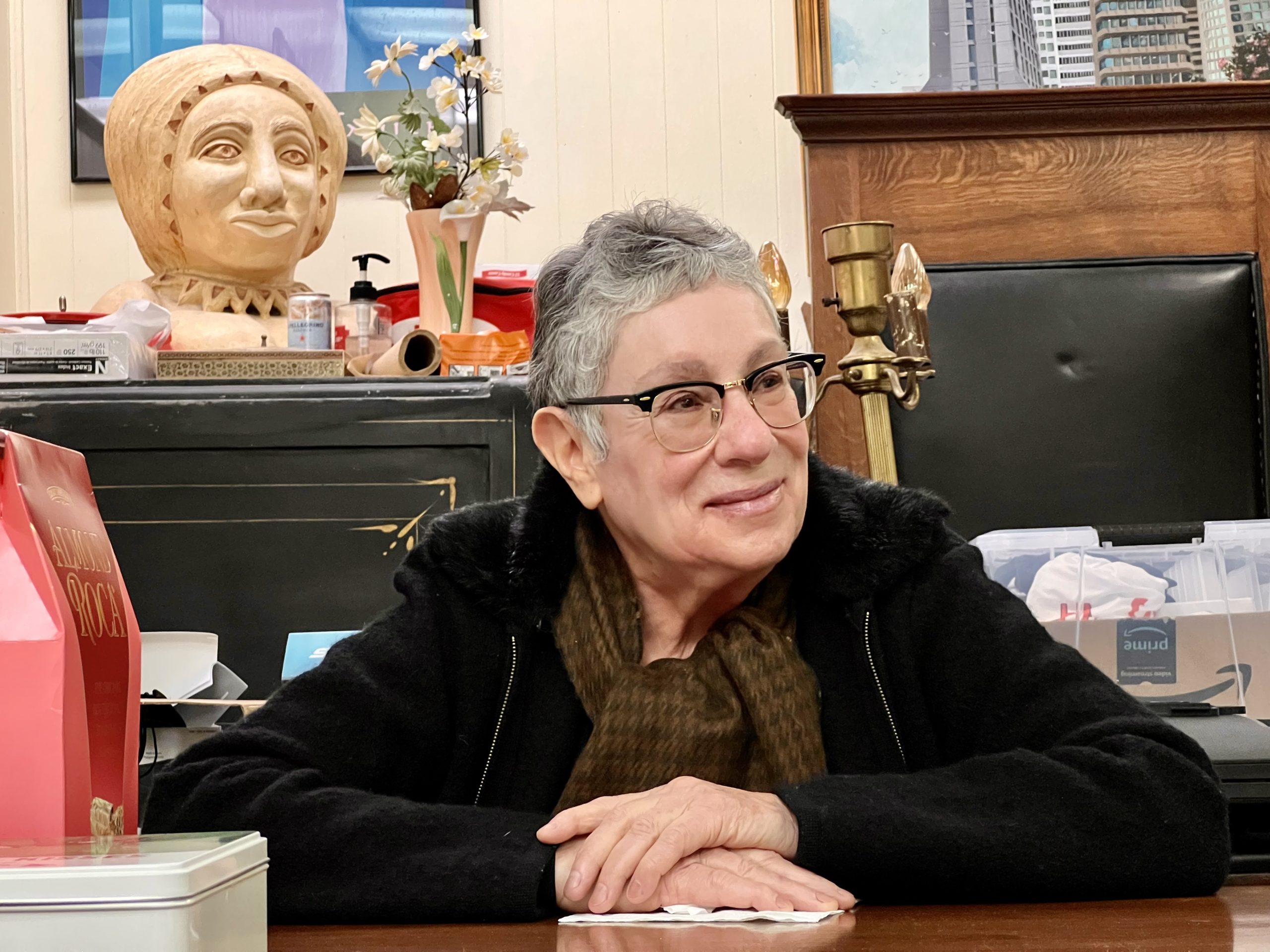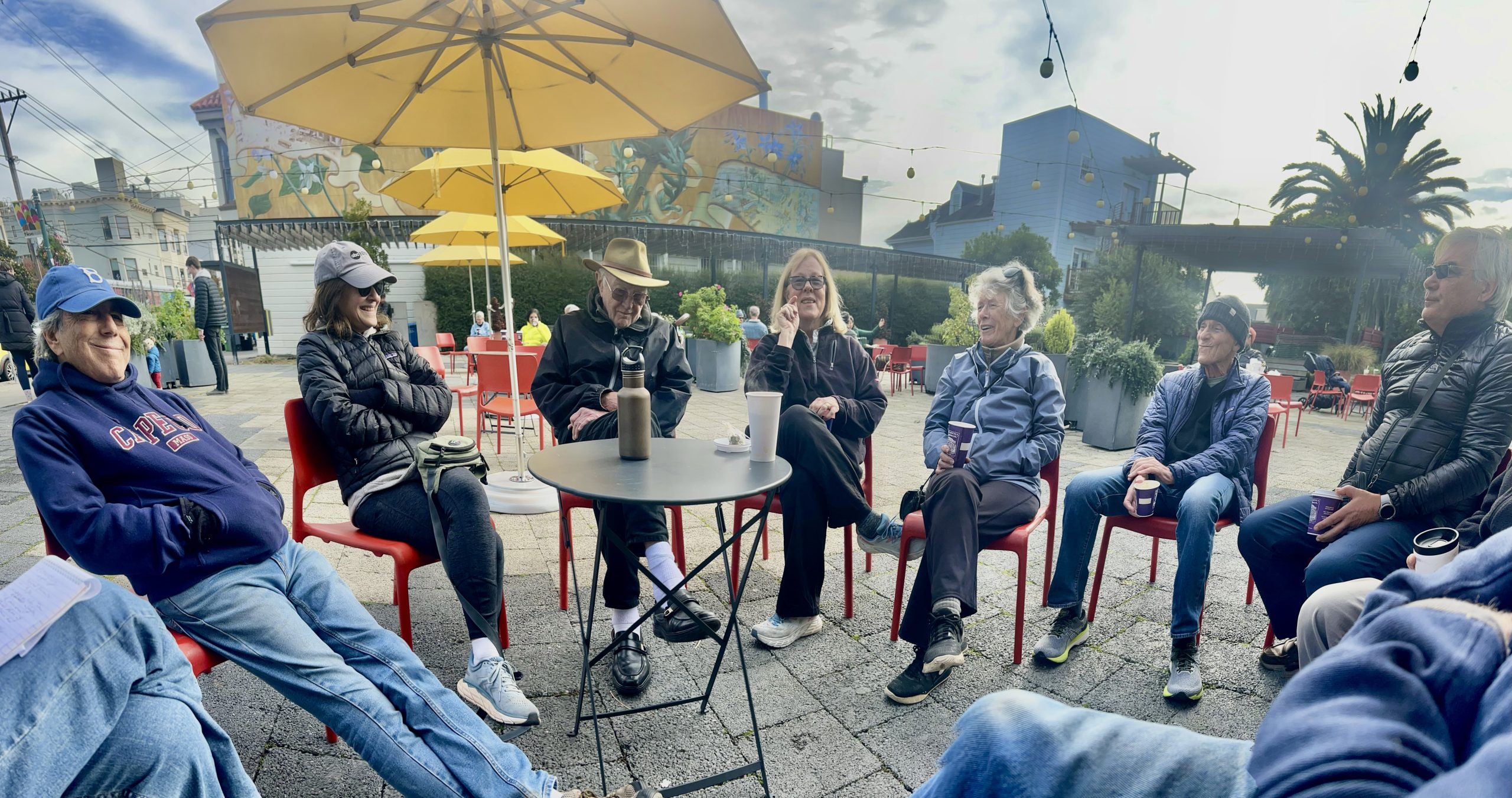After years running a print shop, émigré ‘choinkan’ player finds youthful memories and soul solace in traditional Chinese melodies
John Choy gets cold when performing outdoors; he’s almost 100. So, he wears a heavy padded jacket with long sleeves. When he plays his butterfly harp or banjo, his long fingers emerge from the cuffs like sea anemones to float effortlessly across the strings.
Choy has over 300 songs in a repertoire of traditional Chinese melodies, with lyrical names like Thunder in Hot Summer, Hungry Horses Shake Bells, Fishermen Singing at Midnight, Floating Clouds Flowing Water, and True Love from Childhood.

Before the pandemic, he played regularly for celebrations at the Visitation Valley Senior Center and at San Francisco State University’s Chinese New Year’s celebrations. “You know, over 90 percent of the musicians I played with have passed on,” he said matter-of-factly.
But Choy is still here and still playing, with the mahogany and snakeskin banjo, or “choinkan,” that has been his companion for over 30 years. He lives in Visitation Valley, and in July, performed on a public plaza near his home, sponsored by the Mission Blue cafe on Leland Avenue, which hosts live music on Saturdays.

“When I play, I forget any stressful situations,” he said. “All problems ease up and I feel only the melodies.”
Choy took up strings when he was nine or 10, when his brother brought home a banjo-like instrument. His parents didn’t play, but had many phonograph records, and there was always music in the house.
“I never learned to read music, but I learned the scales by listening,” he said. “Growing up, I listened to music constantly. Maybe 10 percent Western music, but mainly traditional Chinese melodies.”
Choy was born in 1926, in the village of Sa Po, county Toisan, in Canton (now Guangzhou). In 1949, his family’s property was confiscated when communists took over the country.
‘A dangerous intellectual’
“The regime persecuted educated people like my parents, who were teachers,” he said. “I feared for my life. As someone with a college degree – in accounting – “the communists considered me a dangerous intellectual.”
In 1954, he fled to Hong Kong, leaving his wife and two small children in the village. She agreed he should leave first; she would follow.
Choy landed in Hong Kong penniless but found a job for $40 a month teaching basic accounting. He slept in the school bathroom and storage area. Those years were all about survival. On occasion, he would go to nightclubs and find musicians to play with. But mostly, he worked.
He took night classes, taught school for long hours, and saved money to bring his wife over. She eventually she joined him, and four more children were born.
Choy worked his way up from teacher to principal and founded a school as well. But 1960s Hong Kong experienced lots of unrest, said his daughter, Marian Choy, who helped translate for her father. “There were protests and bombings, and my father knew that sooner or later, we had to go, as the Communists were going to come eventually.”
So, he began planning the family’s next move.
As a teacher, he was able to apply for a U.S. visa program for skilled workers under the Kennedy administration. In 1969, after 15 years in Hong Kong and at age 43 with a wife and six children, Choy found himself starting over again.
A friend indeed
He had one friend in San Francisco, a pastor. So, the family moved here. Asked if it was the right decision, he said, “I am so very happy, and so very, very lucky!” He repeats: “Lucky, Lucky, Lucky. I am so lucky!
He and his wife, who is in her mid 90s, have been together in Visitation Valley for 71 years now.

Soon after arriving in the United States, Choy opened a printing shop in Chinatown. While his wife managed the household, their children worked in the shop after school.
“We did everything, from menus to business cards,” said Marian. “We printed community newspapers and did it all: the layout, created the plates and set the type. We all worked long hours, and I don’t remember my dad playing music in those years.“
Choy remembered, too.
“I worked so much in those years, the ’70’s and the ’80’s, but I did try to go to the South China Music Club, on Washington Street in Chinatown, at least on Sundays, to play for my soul.”
Though he taught a Chinese language class at San Francisco State University as well as St. Mary’s elementary school, he has no regrets about giving up his teaching career in Hong Kong to be a printer in San Francisco. “I have all freedom in this country. I think the communist regime killed more people than the holocaust.”
As his life unfolded in San Francisco, he was able to play music occasionally, such as when tour groups stopped in his Chinatown shop or on Chinese New Year. It was only in retirement that he could finally devote himself more fully to his beloved butterfly harp.
When he lost his lease on the print shop, around 1990, he decided to retire. By then his children were through college – he has 14 grandchildren – and he was serving on the boards of several Chinatown nonprofits.
Since then, music has been his mission, but he wanted it known that he does not sing. “I never sang. I am an instrumentalist, and I only play the music,” he said and took out his phone to show one of his performances on YouTube.






Judy Greengard
What a wonderful story! So heartening in these dark days to hear a tale of success
Dina lisha
Thank you so much for a beautiful article. I was very moved by Choi Chan's life, talents and resiliency.